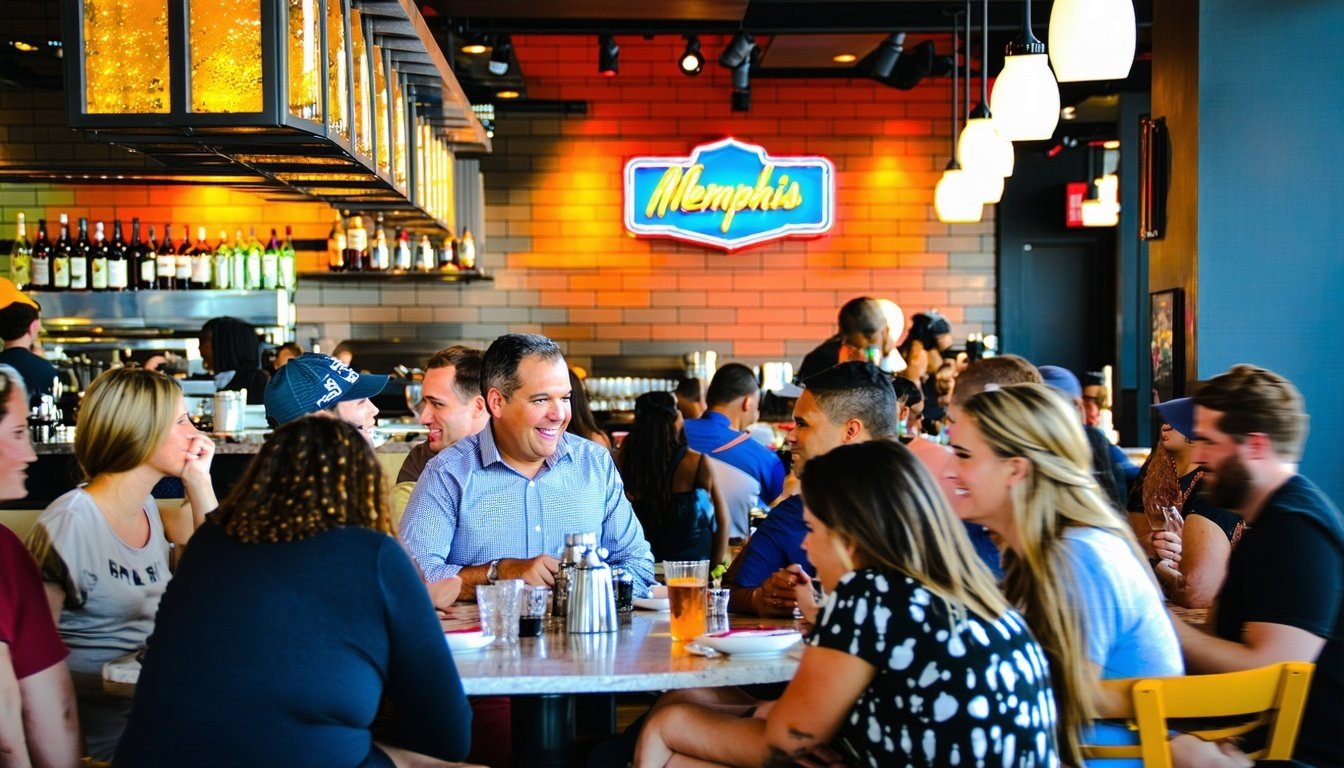Funding Solutions for Restaurants in Memphis and Knoxville
Restaurant owners in Memphis and Knoxville face high startup and operating costs—kitchen equipment, build-outs, staffing, marketing, and seasonal cash flow fluctuations. This guide outlines funding solutions for restaurants and cafés in both cities, including grants, loan programs, and strategies to succeed.
1. Why Restaurants Need Custom Funding
Key funding needs include:
-
Commercial-grade ovens, refrigerators, mixers
-
Remodels, interior design, outdoor patios
-
Kitchen staff, front-of-house pay, training
-
Inventory, licensing, permits, and insurance
-
Seasonal cash flow for openings, holidays, or festivals
-
Marketing, delivery systems, and technology
Targeted funding enables restaurants to grow confidently and enhance guest experience.
2. SBA Loan Programs for Restaurants
SBA 7(a) Loans
-
Up to $5 million, usable for equipment, renovations, working capital, or real estate
-
Attractive repayment terms and competitive interest rates
-
Best for restaurants expanding locations or remodeling
SBA 504 Loans
-
For major assets like real estate or high-cost equipment
-
Requires partnership with a development entity; offers fixed rates and long repayment
SBA Microloans
-
Up to $50,000 via nonprofit lenders
-
Ideal for startups, pop-ups, or new café installations
-
May include mentoring and relaxed approval requirements
3. Equipment Financing for Foodservice
Key financing routes include:
-
Equipment loans with monthly payments and the asset as collateral
-
Leasing for flexible upgrades—e.g., POS systems, stoves, coolers
-
Financing bundled with installation and maintenance assistance
Great for restaurants needing quick access to essential gear.
4. Local Grant Programs & Accelerators
Memphis and Knoxville offer business support programs such as:
-
Local hospitality grant funds for façade or patio upgrades
-
Small-business mini-grants for entrepreneurs in underserved neighborhoods
-
Accelerator programs with funding and mentoring for food ventures
These initiatives often include coaching and community exposure.
5. CDFI and Community Lender Options
Community Development Financial Institutions (CDFIs) in Tennessee offer:
-
Loans ranging from $10,000 up to $250,000
-
Flexible terms for minority-owned or small, local restaurants
-
Support services such as credit coaching or business planning
These lenders help restaurants bypass traditional banking requirements.
6. Working Capital & Seasonal Financing
Restaurants commonly tap into:
-
Lines of credit for inventory, payroll, or bill coverage
-
Short-term working capital loans for menu launches or peak periods
-
Receivables financing or inventory-backed loans to smooth cash flow
These tools support daily operations and seasonal variability.
Featured Snippet: 7-Step Restaurant Funding Plan
-
Specify your goal—equipment, renovation, expansion, or cash flow
-
Choose a funding path—SBA loan, equipment financing, grant, or CDFI loan
-
Prepare documents—financials, business plan, vendor quotes
-
Prequalify with multiple lenders for comparison
-
Submit a polished application with support materials
-
Close the loan and deploy funds strategically
-
Track performance—revenues, costs, staff and customer metrics
7. Funding Options Overview
| Funding Option | Loan Size | Best For | What to Know |
|---|---|---|---|
| SBA 7(a) | Up to $5M | Location expansion, equipment upgrades | Requires strong financials and credit |
| SBA 504 | Varies | Real estate or major equipment | Fixed rates; involves support partner |
| SBA Microloan | Up to $50K | New cafés, pop-ups, small projects | Includes mentoring and easier approval |
| Equipment Financing | Depends | Kitchen gear, tech, serving tools | Asset-backed; quick access |
| Local Grants | Typically <$25K | Storefront upgrades or marketing | Competitive; may require local commitment |
| CDFI Loans | $10K–$250K | Underserved owners, startups | Mission-driven; supportive terms |
| Line of Credit | Depends | Inventory, payroll, seasonal costs | Revolving; interest only on drawn amounts |
8. Restaurant Success Story
A Memphis food truck crew used:
-
A $30K SBA microloan to launch kitchen equipment
-
A $50K CDFI loan to finance their first trailer and outdoor gear
-
A $25K local grant to support marketing and community pop-ups
Outcome: they opened a brick-and-mortar location within a year, boosted monthly revenue by 60%, and hired three staff members.
9. Steps to Improve Loan Approval
-
Maintain credit scores above 650
-
Organize two years of financials and tax records
-
Obtain detailed vendor quotes for planned expenses
-
Present a clear restaurant plan with projected ROI
-
Apply with support from local small-business assistance programs
-
Consider multiple loans to match specific needs
Final Takeaway
Restaurants in Memphis and Knoxville have access to a range of funding—from SBA and equipment financing to grants and community-directed loans. By identifying your key needs, preparing a solid business plan, and selecting the right mix of funding, you can elevate your brand and grow with confidence.
✅ What to Do Next
-
Clarify your funding objective—equipment, site upgrades, expansion, or cash flow
-
Select the most appropriate funding route(s)
-
Compile financials, quotes, and a polished business plan
-
Prequalify with SBA lenders, CDFIs, and local programs
-
Submit your applications and deploy funds strategically
If you’d like help choosing the best funding mix or preparing your application materials, I’d be glad to support your restaurant growth in Tennessee!






